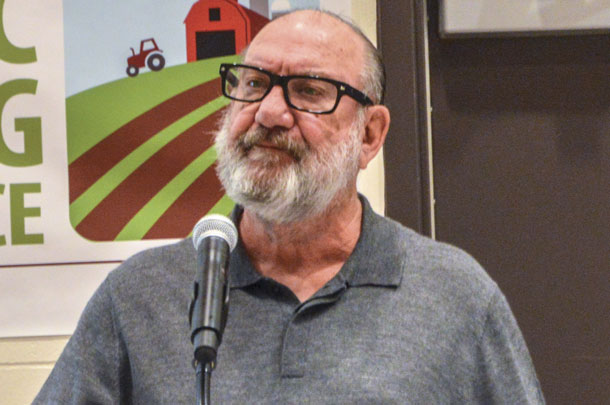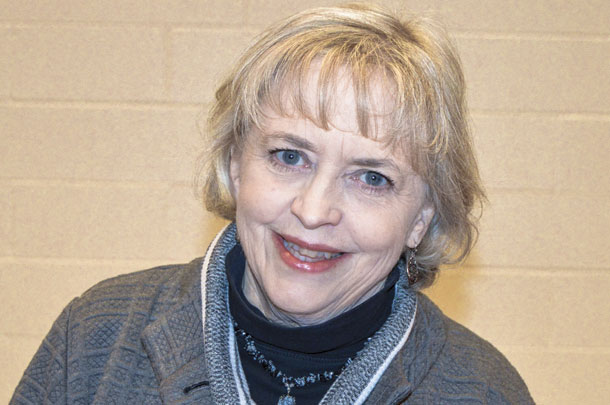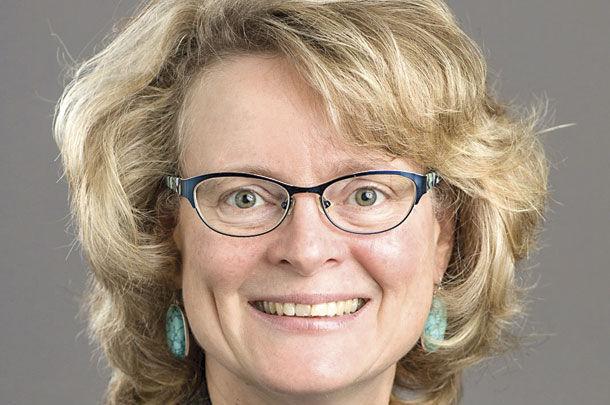“Do you want to maintain the family farm by passing it on to one of your children or divide the land equally between the children so then it is divided and sold?” asks Ted Matthews. “People always want an option C. There is almost always no option C.”
 Matthews, a mental health practitioner with Rural Minnesota Mental Health Support, has helped numerous families with succession planning. He is not called when the succession planning is starting or going well.
Matthews, a mental health practitioner with Rural Minnesota Mental Health Support, has helped numerous families with succession planning. He is not called when the succession planning is starting or going well.
Instead, he becomes involved when things are going poorly, the family is fighting, and matters need to be resolved before they can move forward.
There is not one single formula for farm succession planning, and many families have a hard time even starting the conversation. “It can be tough, so parents keep putting it off. Then, when mom and dad die, all hell breaks loose,” he says.
The problem, Mathews says, is often the concept of being “fair.” He points out being equitable in a farm transfer may simply not be possible.
The first question for the parents to answer is whether they want to keep the farm in the family. If yes, what does that look like, and how can things be set up to make that happen? If it is going to remain a family farm, everyone will have to give in to that concept.
Having family meetings about succession planning is important so everyone hears the same message, Matthews says. Everyone who has an interest should be present, including spouses and grandchildren if they are involved with the outcome. “All points need to be heard,” he says.
Matthews says when he is called in to assist a family in crisis, family members are usually angry before the meeting even starts. “Oftentimes feeling slighted comes from other sources,” he says, that have nothing to do with the farm transfer.
Delaying start is common mistake
 Melissa O’Rourke of Iowa State University Extension agrees that one of the most common mistakes families make is putting off succession planning. “They are afraid of the difficult conversations, unsure of what to do and believe there will be time to get a plan in place later,” she says. “Almost any plan is better than no plan at all.”
Melissa O’Rourke of Iowa State University Extension agrees that one of the most common mistakes families make is putting off succession planning. “They are afraid of the difficult conversations, unsure of what to do and believe there will be time to get a plan in place later,” she says. “Almost any plan is better than no plan at all.”
An assertion that “I’m going to run the farm until I die” does not qualify as having a plan, she notes.
O’Rourke is an attorney and farm and agribusiness management specialist. She advises family not to try to do succession planning on their own but to build a team of professionals, including legal counsel. “The family attorney cannot represent everyone in the family,” she says.
Each party to a succession plan should meet regularly with their own attorney to discuss goals and plans on a regular basis. “Good legal counsel is worth every penny,” she says.
O’Rourke notes while most farmers understand the importance of having a working relationship with bankers, tax advisers and insurance planners, they overlook the importance of having a relationship with a lawyer before they are needed to settle a dispute or problem.
It’s also important to factor in “sweat equity” when trying to treat children fairly. O’Rourke uses the example that parents all try to treat children equally, but if one of the kids needs braces on his or her teeth, the parents don’t give the child with straight teeth a check equal to the payment to the orthodontist.
O’Rourke recommended a “Transferring the Farm” series available online from the University of Minnesota Extension. She points out a section on how to quantify sweat equity (available at University of Minnesota Extension - Transfer and estate planning).
Ideally, O’Rourke says, the net worth of an operation should be calculated when all the children have completed school or when one joins the operation. Knowing the assets and liabilities at a starting point can be a great help when doing succession planning.
 She also points out that parents actually have no obligation to leave their kids anything; in fact, 80 percent of Americans inherit nothing after their parents’ deaths. But where there is a desire to leave something to all of their children (including on-farm and off-farm heirs), life insurance can be another tool to accomplish that.
She also points out that parents actually have no obligation to leave their kids anything; in fact, 80 percent of Americans inherit nothing after their parents’ deaths. But where there is a desire to leave something to all of their children (including on-farm and off-farm heirs), life insurance can be another tool to accomplish that.
Two options worth considering
There are many different ways to plan for farm succession, but O’Rourke says two worth considering are creating a “spin-off” operation or a “multiperson” operation.
A spin-off arrangement can result in fewer goal conflicts and joint decisions. “The spin-off operation is used when the farm business is not large enough to support both families, so the younger party creates and develops a separate business and does not draw resources from the parents’ business,” she says.
If an operation can support more than one family at a time, a multiperson operation may be best. In this type of arrangement, some form of the operating agreement should be put into writing that allows the younger generation to invest, provide management and receive a portion of the income.
For more resources, O’Rourke recommends the transition and estate planning materials available at the Iowa State Ag Decision Maker website (Iowa State University - Ag decision maker). ![]()
PHOTO 1: Ted Matthews, a mental health practitioner with Rural Minnesota Mental Health Support, has helped numerous families having issues when succession planning. Photo by Kelli Boylen.
PHOTO 2: Melissa O’Rourke of Iowa State University Extension often recommends producers looking to transition the farm create a “spin-off” operation or a “multiperson” operation. Photo by Kelli Boylen.
PHOTO 3: Madeline Schultz worked with her parents to help transition their family dairy farm, not to the next generation but to their granddaughter. Photo provided by Madeline Schultz.
Kelli Boylen is a freelance writer based in northeast Iowa.
Working through the unexpected
Madeline Schultz, Iowa State University Extension and Outreach Women in Ag program manager, worked with her parents to help transition their family dairy farm, not to the next generation but to their granddaughter.
A few years ago, her family began to have farm business meetings. They were learning how to talk through important and sometimes sensitive issues. Then, Schultz’s dad called for an unscheduled family meeting. When the family gathered, Schultz’s dad announced that he was selling the cows. This unexpected decision left several family members in tears.
Assumptions can be harmful to a family business, and Schultz’s family felt the effects of that firsthand. “I assumed my parents wanted their dairy farm business to continue and they wanted to keep living on the farm. I assumed my daughter would have opportunities to grow the dairy farm business for the future,” she says.
The family recognized the need to try again and held another family meeting, then another. “I’m proud of my family for not giving up and learning a new way of managing a multigenerational farm,” Schultz adds. “Even if the farm transition is going poorly, it can get better.”
She notes good decisions and family harmony are worth the hard work of figuring out how to make family farm business meetings successful. They can start simple, such as talking about who is doing what on the farm in the upcoming week. This will make it easier to begin discussing more strategic or long-term decisions. “Start holding family meetings now,” Schultz says. “They take practice.”
Schultz’s family worked things out through compromise and a better understanding of the goals of each family member. They continue to dairy farm and have an eye toward innovations for the future.
“On a multigenerational farm, the different generations often have different values,” Schultz says, explaining one of the common reasons for conflict during transition planning. “The reality is: Personal values and feelings are often just as likely to drive decision-making as is logic and information.”
Schultz says talking about future goals, no matter how grand, and recounting the past, including mistakes, opens each generation up to vulnerability, and that can be scary. “When the hopes, dreams and intelligence of each generation are shared and acknowledged, we can create a more cohesive vision for the future of the farm,” she says.





